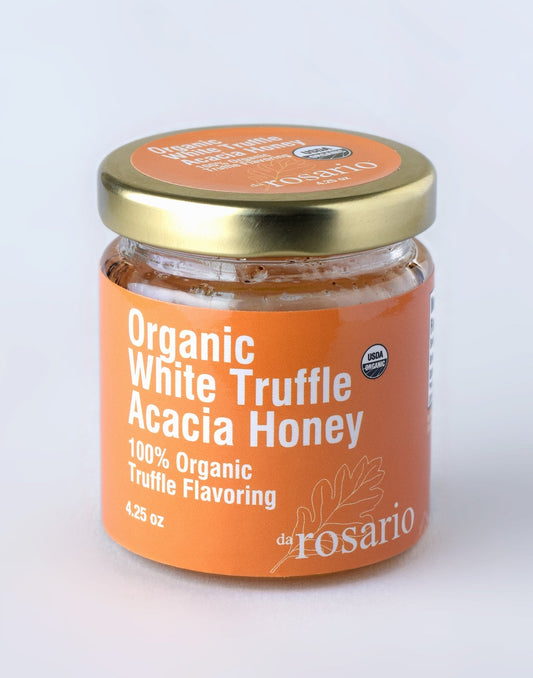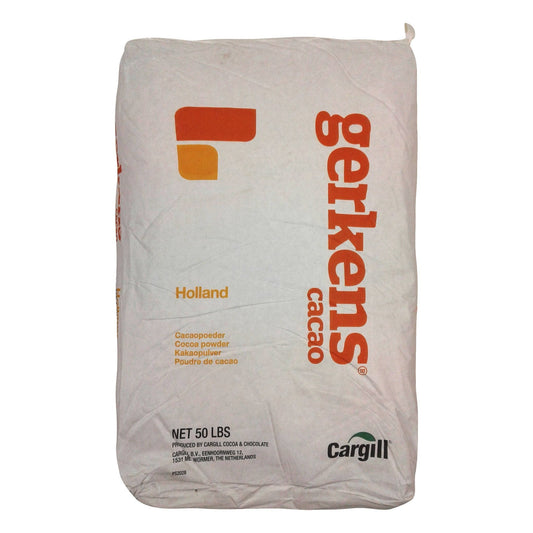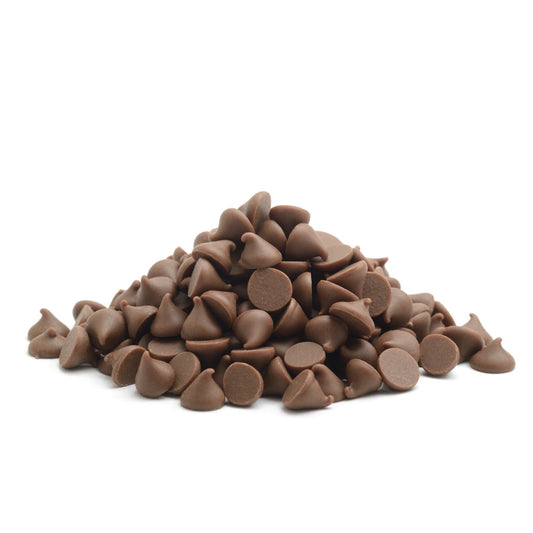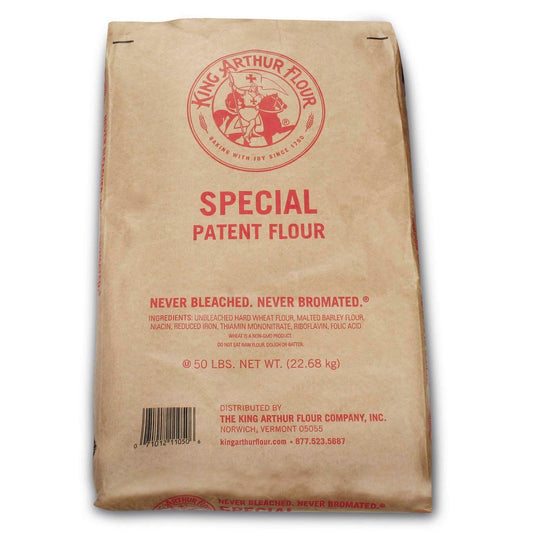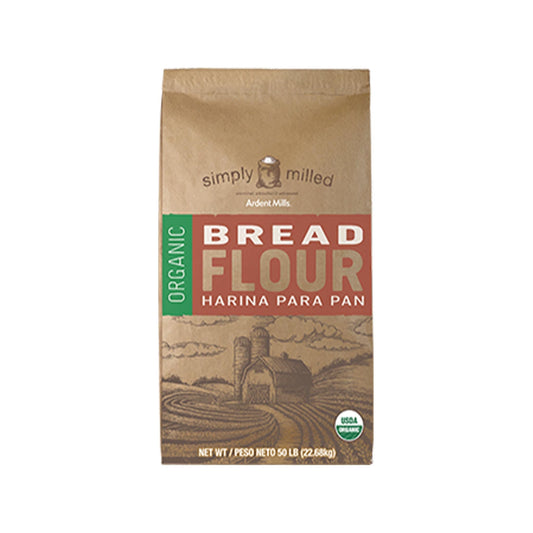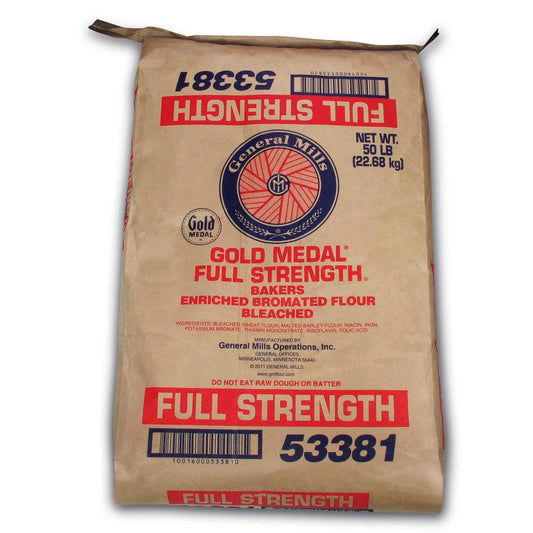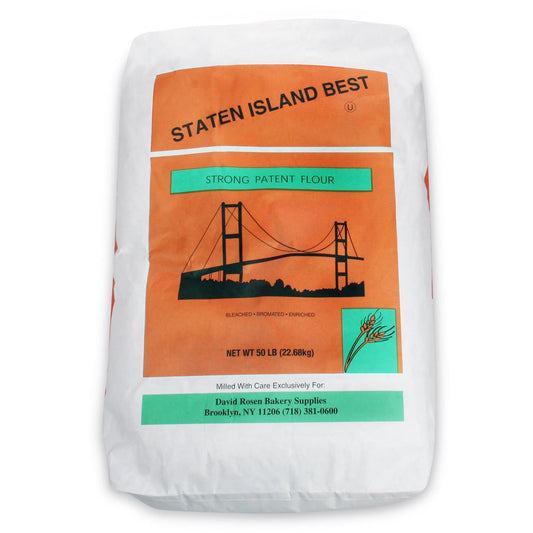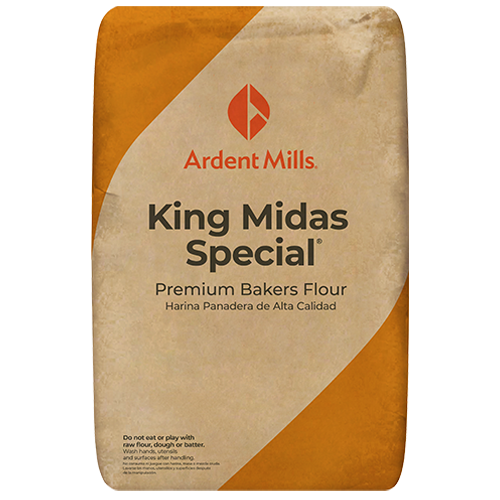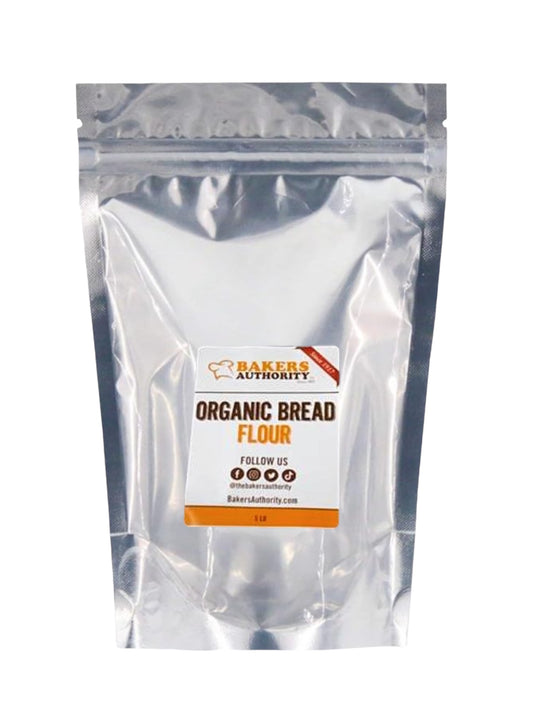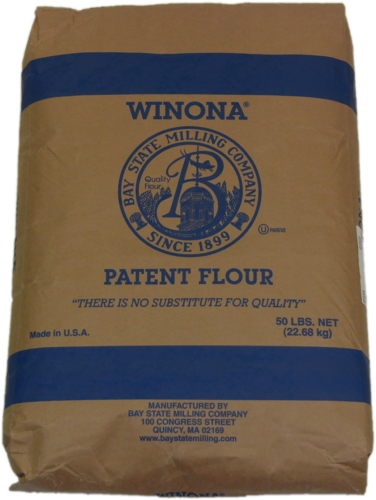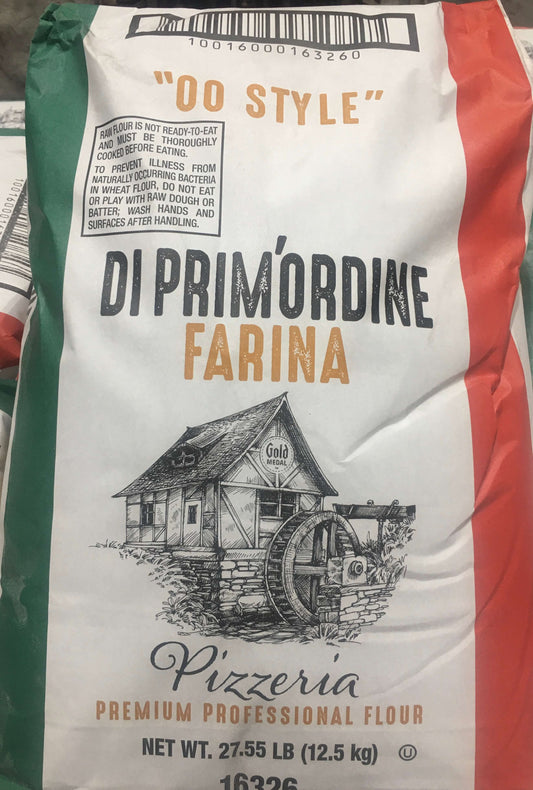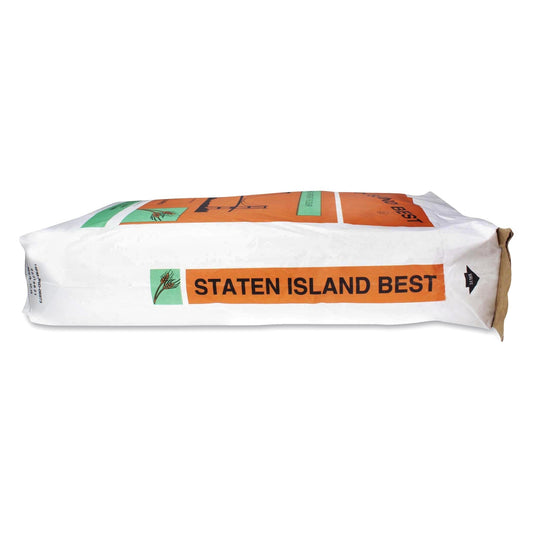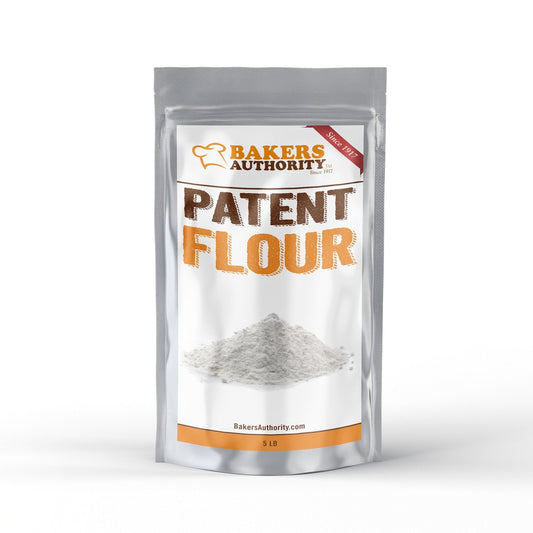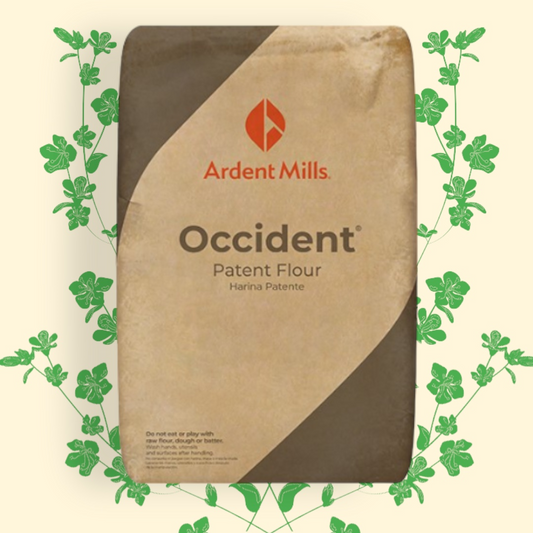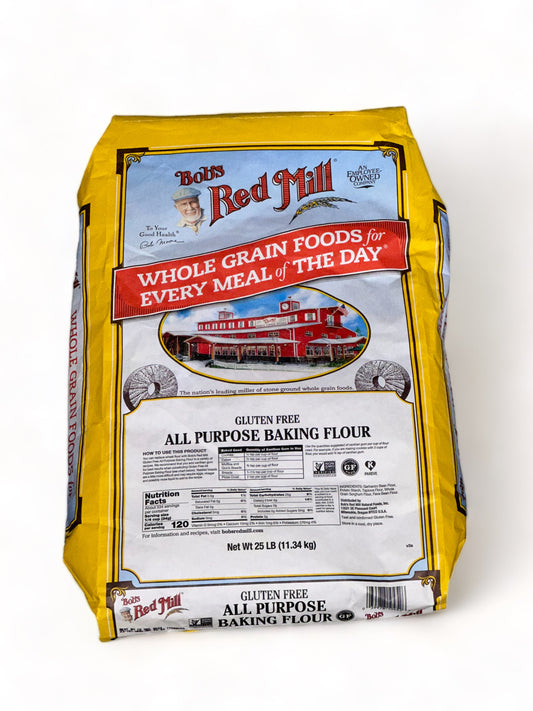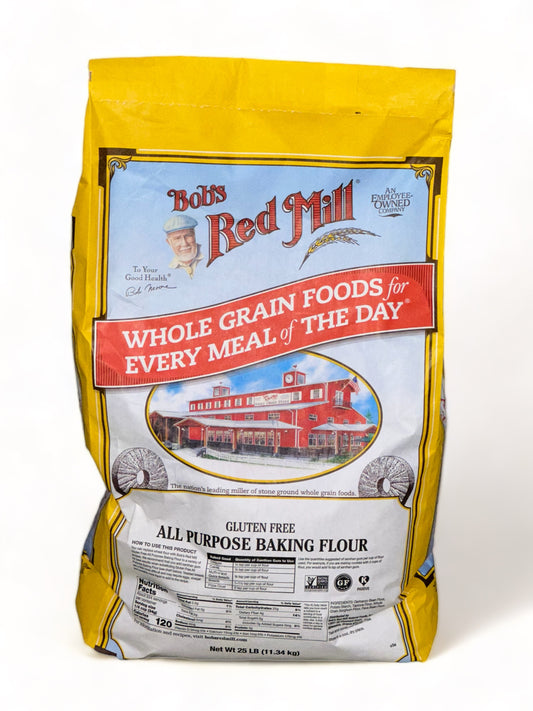-
Vendor:King Arthur
Special Patent Flour - King Arthur 50lbs.
Regular price $35.68Regular priceUnit price per -
Vendor:Ardent Mills
Organic Bread Flour (10-11.5% Protein)
Regular price $59.12 / Bag (50Regular priceUnit price per$59.13 / Bag (50Sale price $59.12 / Bag (50Sale -
Vendor:General Mills
Full Strength Flour 50lbs.
Regular price $34.39Regular priceUnit price per -
Vendor:Staten Island Best
Strong Patent Flour - All Purpose Flour 50lbs.
Regular price $30.39Regular priceUnit price per -
Vendor:Ardent Mills
King Midas Special Flour
Regular price $33.79Regular priceUnit price per -
Vendor:Bakers Authority
Organic Bread Flour 5LB (10-11.5% protein)
Regular price $8.94Regular priceUnit price per$8.78Sale price $8.94 -
Vendor:Bay State Milling
Winona Patent Flour (Unbleached, Unbromated)
Regular price $33.64Regular priceUnit price per -
Vendor:General Mills
Di Prim'Ordine 00 Pizza Flour
Regular price $25.37Regular priceUnit price per -
Vendor:Staten Island Best
Staten Island Best All Purpose Flour (Yoshon)
Regular price $32.67Regular priceUnit price per -
Vendor:Bakers Authority
DISCONTINUED Patent Flour (UnBleached, UnBromated) 5LB
Regular price $6.59Regular priceUnit price per -
Vendor:Ardent Mills
Ardent Mills - Occident Unbleached (RG) Patent Flour - 50lbs
Regular price $31.46Regular priceUnit price per -
Vendor:Bob's Red Mill
Bob's Red Mill All Purpose Baking Flour Gluten Free - 25 lbs
Regular price $71.00Regular priceUnit price per
Additional Resources
Frequently Asked Questions
-
What is patent flour?
- Patent flour is a miller's term referring to a highly refined, 'white flour' that can be milled from any type of wheat, be it soft, hard, or in between. Its defining characteristic is a low to moderate ash content, indicating a lower mineral content or higher degree of refinement in the flour.
-
Is patent flour the same as plain flour?
- No, patent flour and plain flour are not exactly the same. While both are forms of white, refined flour, they differ in the type of wheat used and their protein content. Patent flour can be derived from any wheat variety, and its protein content can vary. In contrast, plain flour is generally made from a blend of hard and soft wheat varieties and has a consistent, medium protein content.
-
What is patent flour used for?
- Patent flour is a versatile type of flour used in a broad range of baking applications. Thanks to its low to moderate ash content, it's particularly suitable for baking goods with a light and delicate texture, including cakes, pastries, biscuits, and certain types of bread.
-
Is special patent flour the same as bread flour?
- No, special patent flour and bread flour are different. Special patent flour is a high-protein type of patent flour, but it doesn't equate to bread flour. Bread flour generally has a higher protein content to facilitate gluten development, but it's not as refined as special patent flour.
-
What is the difference between King Arthur patent flour and bread flour?
- King Arthur patent flour and King Arthur bread flour differ mainly in their degree of refinement and protein content. Both types are made from hard wheat, but patent flour is more refined and can have varying protein content. In contrast, bread flour maintains a high, consistent protein content to aid in gluten development, making it ideal for bread-making. However, it is less refined than patent flour, leading to a slightly denser texture.
-
Can I substitute patent flour for other types of flour?
- The suitability of patent flour as a substitute for other types of flour depends on the specific baking application. Given its refined nature and variable protein content, patent flour may not be the best choice for recipes requiring specific characteristics from the flour, such as high-protein bread recipes. Always consider the protein content and degree of refinement required in your recipe when deciding on a substitution.
-
How does the ash content affect the use of patent flour?
- The ash content of patent flour, which is low to moderate, indicates the flour's degree of refinement and mineral content. A lower ash content means that the flour is more refined and has a lighter texture and color, making it ideal for delicate baked goods. However, a lower mineral content can also mean less flavor depth compared to less refined flours, so the specific use will depend on the desired outcome of your baked goods.

